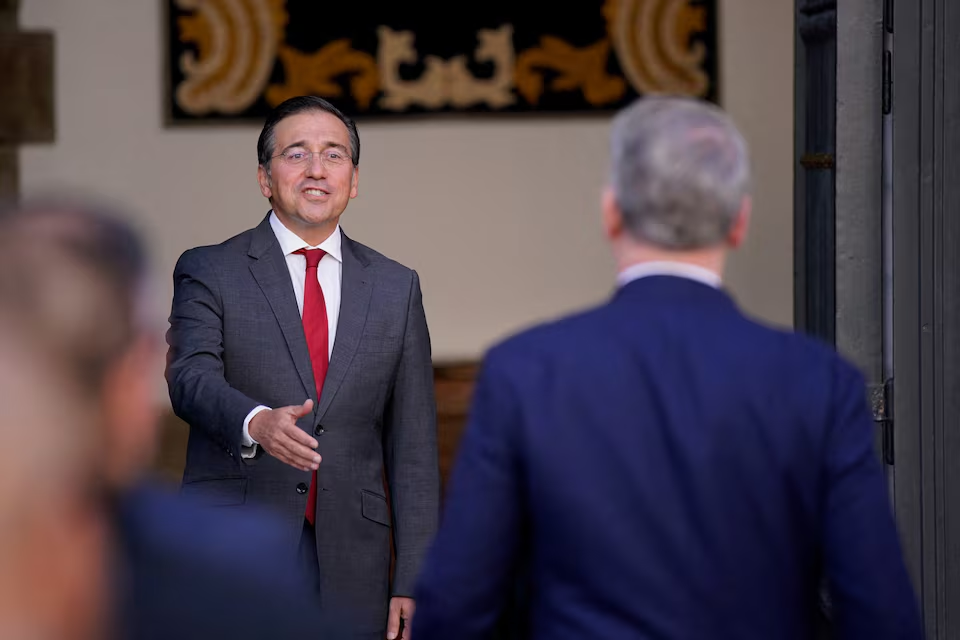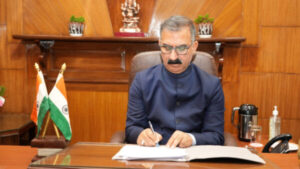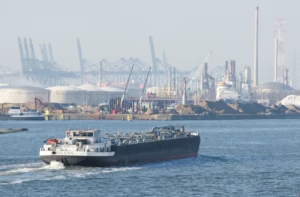U.S. and Chinese Officials Hold Talks in Spain on Trade Barriers and TikTok Deadline

U.S. and Chinese officials began discussions on Sunday in Madrid addressing their strained trade relations, the looming deadline for the divestment of the Chinese-owned short video app TikTok, and Washington’s push for its allies to impose tariffs on China over its purchase of Russian oil.
U.S. Treasury Secretary Scott Bessent and U.S. Trade Representative Jamison Greer met with Chinese Vice Premier He Lifeng and top trade negotiator Li Chenggang at the Baroque Palacio de Santa Cruz, Spain’s foreign ministry headquarters in Madrid.
This marks the fourth round of talks in four months between the two delegations, who have been meeting in European cities in a bid to prevent the worsening trade relationship from collapsing under the weight of President Donald Trump’s tariff policies.
Their previous meeting took place in Stockholm in July, where both sides agreed in principle to extend a 90-day trade truce. The agreement led to significant reductions in retaliatory tariffs and reopened the flow of rare-earth minerals from China to the United States.
Trump has approved extending the current U.S. tariff rates on Chinese goods—which amount to roughly 55%—until November 10.
Trade experts, however, expressed skepticism that the Madrid talks would yield any concrete breakthrough. Spain has attempted in recent years to improve relations with Beijing, but the most likely outcome of the Madrid meeting appears to be another extension of the September 17 deadline for ByteDance, TikTok’s Chinese parent company, to sell its U.S. operations or face a shutdown in the country.
A source familiar with the Trump administration’s discussions on TikTok said that no deal is expected, but that the deadline will likely be extended for the fourth time since Trump took office in January.
Trump launched a TikTok account last month.
Previous rounds of U.S.-China trade talks in Geneva, London, and Stockholm did not address TikTok. However, the source noted that by publicly including the issue in the agenda for the first time, the Treasury’s announcement gives the administration political cover to push for another extension, despite potential criticism from both Republican and Democratic lawmakers in Congress. These lawmakers have demanded that the app be sold to an American entity to mitigate national security concerns.
Wendy Cutler, former U.S. trade negotiator and head of the Asia Society Policy Institute in Washington, said she expects both sides to preserve more substantial “wins” for a possible Trump-Xi Jinping summit later this year, potentially at the Asia-Pacific Economic Cooperation Summit in Seoul at the end of October.
According to Cutler, these could include a final agreement addressing U.S. national security concerns over TikTok, lifting restrictions on U.S. soybean exports to China, and easing fentanyl-related tariffs on Chinese goods. The Madrid discussions may lay the groundwork for such a summit.
However, she added that addressing China’s core economic complaints—including shifting its economic model toward greater domestic consumption and reducing reliance on state-supported exports—could take years.
“To be honest, I don’t think China is in any hurry to sign a deal unless it receives substantial concessions on export controls and tariff reductions, which are its top priorities,” Cutler said. “And I don’t think the U.S. is in a position to offer major concessions unless China makes tangible progress on its demands.”
Pressure on Russian Oil
The Treasury Department also confirmed that joint U.S.-China efforts to tackle money laundering would be discussed at the Madrid talks. This aligns with Washington’s long-standing demand that China stop illegal shipments of technology to Russia, which support its war in Ukraine.
Bessent urged Group of Seven (G7) partners on Friday to impose “meaningful tariffs” on imports from China and India to pressure them into halting purchases of Russian oil. The move aims to reduce Moscow’s oil revenues and force it to join peace talks in Ukraine.
G7 finance ministers also discussed measures to increase pressure on Moscow and accelerate talks on using frozen Russian assets to support Ukraine’s defense.
In a separate statement, Bessent and Greer called on G7 allies to support U.S. tariffs on buyers of Russian oil.
Citing Russian President Vladimir Putin, they said, “Only a unified effort that blocks funding at the source for Putin’s war machine can exert enough economic pressure to stop this senseless slaughter.”
While the U.S. has imposed an additional 25% tariff on Indian goods due to Russian oil purchases, it has so far refrained from similar punitive tariffs on Chinese products.
China’s Ministry of Commerce stated that the Madrid talks would cover issues such as U.S. tariffs, misuse of export controls, and economic and trade concerns like TikTok.
Spain’s Moment in the Spotlight
Spanish Foreign Minister José Manuel Albares publicly welcomed both delegations before the talks began.
A government source said Spain’s selection as the venue for this “delicate” round of talks reflects Madrid’s growing ambition to position itself as a hub for high-level strategic negotiations.
Spain has also sought to host an international peace conference aimed at resolving the Israel-Palestine conflict.
The source added that Spain aims to strengthen bilateral ties with the U.S. after strained relations, having criticized Israel’s invasion of Gaza and declined, unlike other NATO members, to commit 5% of its budget to defense.
Bessent also criticized Spain in April at the peak of Trump’s tariff offensive for branding Beijing a “strategic partner,” calling close relations with the Asian giant akin to “cutting off one’s own throat.”

Continuing the achievement of the journey of effectiveness and credibility of more than 10 years in the career of journalism, as a woman journalist, I am Serving as the founder, promoter and editor of DiaryTimes with the trust and support of all. My credible coverage may not have given a big shape to the numbers, but my journey presents articles that make you aware of the exact and meaningful situations of Himachal’s politics, ground issues related to the public, business, tourism and the difficult geographical conditions of the state and financial awareness. DiaryTimes, full of the experience of my precise editorial expertise, is awakening the flame of credible journalism among all of you, so that the eternal flame of meaningful change can be lit in the life of the people of the state and the atrocities being committed against the people can be brought to the fore, I am motivated for that. If even a small change comes with the power of my journalism and the whole world becomes a witness to that issues, then I will consider myself fortunate.





